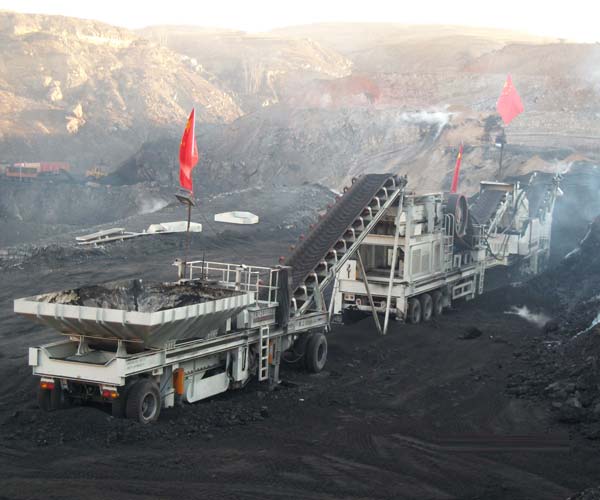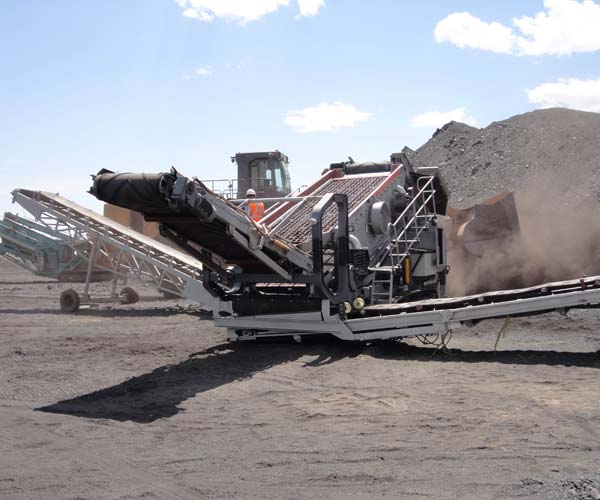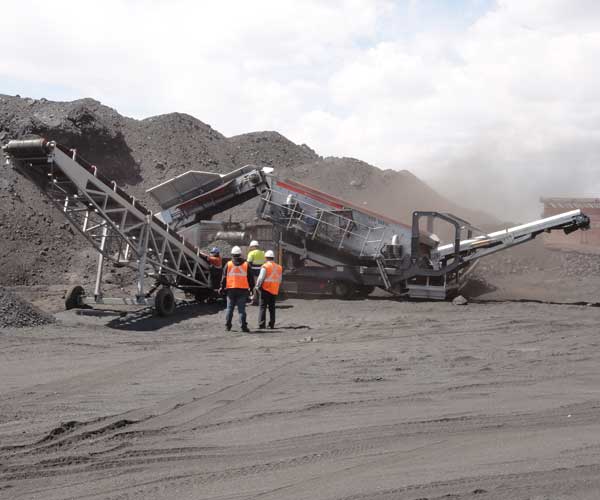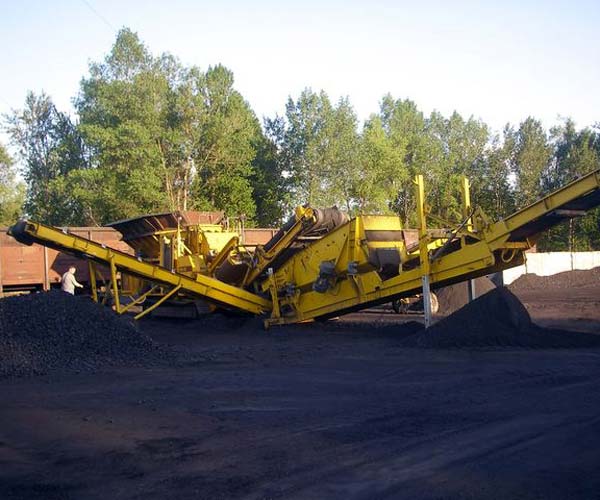
Coal crusher machines play a crucial role in the coal processing industry, helping to break down large coal chunks into smaller, usable pieces. The choice of the right type of crusher depends on factors such as the coal’s characteristics, desired particle size, and production requirements.
24 Online Service

Before it can be utilized effectively, coal must undergo a series of processing steps to convert it into a usable form. One crucial step in this process is crushing, which is facilitated by coal crusher machines.
Coal crusher machines, as the name suggests, are industrial machines designed to break down large chunks of coal into smaller, more manageable pieces. The primary purpose of these machines is to prepare coal for various applications, such as combustion in power plants, the production of coke for steel manufacturing, or as a fuel source in residential and industrial settings. By reducing coal to a consistent size, coal crusher machines enhance its usability and efficiency in a wide range of industries.
Coal crusher machines come in a variety of types, each tailored to specific coal processing needs. Here are some of the most common types:
Jaw crushers are among the most widely used coal crusher machines. They operate by compressing the coal between two large, heavy-duty plates or jaws. As the jaws move closer together, the coal is crushed into smaller fragments. Jaw crushers are known for their simplicity, durability, and ability to handle a wide range of coal sizes.
Impact crushers use the principle of impact to crush coal. They contain rapidly rotating hammers or blow bars that strike the coal and break it into smaller pieces. Impact crushers are suitable for processing coal with a high moisture content or those containing soft impurities. They are also capable of producing a more uniform product size.
Cone crushers, though not as commonly used as jaw or impact crushers, are suitable for secondary and tertiary crushing of coal. They consist of a conical mantle, which rotates and crushes the coal against a stationary bowl. Cone crushers are known for their ability to produce a well-graded product and are often used in applications where precise particle size control is essential.
Roll crushers are designed to crush coal between two rotating rolls. These machines are commonly used for secondary and tertiary crushing and are known for their ability to produce a uniform product size. They are particularly useful for crushing coal with high moisture content and hard or abrasive materials.
Hammer mills are specialized coal crusher machines that use a series of hammers to crush the coal into small pieces. These hammers are typically free-swinging or fixed to a central rotor. Hammer mills are effective for both primary and secondary crushing and are suitable for various coal types.
Gyratory crushers are large machines with a conical crushing head that gyrates within an outer shell. While they are not commonly used for coal crushing, they can handle extremely large feed sizes and are mainly employed in mining applications.
These machines use a high-speed rotor with blades or hammers to shatter coal into smaller particles. They are particularly efficient for crushing brittle or friable coal.

The decision to purchase a coal crusher machine is a significant one for industries and businesses involved in coal mining and processing. These machines play a crucial role in reducing coal into smaller, more manageable pieces, enhancing efficiency, and ultimately impacting profitability. However, the process of acquiring a coal crusher machine is not as simple as walking into a store and picking one off the shelf.
Break down the different price ranges for coal crusher machines, from budget-friendly options to premium models. Include specific price examples and highlight the features and benefits offered by machines in each price range.
Coal crusher machines come in a wide range of prices, and it’s important to understand the different price categories and what you can expect from each. Here, we break down the price ranges and their associated features and benefits:
Budget-friendly coal crusher machines are typically smaller in size and designed for light to moderate usage. These machines are suitable for small-scale operations and can process a limited amount of coal. While they may lack some of the advanced features of higher-end models, they are cost-effective solutions for businesses on a tight budget.
Mid-range coal crusher machines strike a balance between affordability and functionality. These machines are suitable for medium-sized operations and offer more advanced features and automation compared to budget options. They can handle larger volumes of coal and offer increased efficiency.
Premium coal crusher machines are built for heavy-duty use in large-scale operations. These machines come with advanced automation, robust construction, and the ability to handle large volumes of coal efficiently. They are built to withstand the rigors of continuous operation and offer the highest level of reliability.
When deciding on the appropriate price range for your coal crusher machine, there are several factors to consider:

When it comes to making a choice between different options, a common dilemma arises: should you opt for the most budget-friendly equipment, or invest in high-performance machinery that may cost more upfront but promise greater efficiency and longevity
The initial purchase price of a piece of industrial machinery is a key consideration for most businesses. However, it is vital to look beyond this price tag and evaluate the long-term savings that high-performance equipment can offer. Cheaper machinery might help your immediate budget, but it could lead to higher operational costs and more frequent maintenance.
One of the often-overlooked aspects of evaluating cost versus performance is the ongoing cost of maintenance and repairs. Lower-cost machinery can be more prone to breakdowns, requiring frequent repairs and expensive downtime. High-performance equipment, on the other hand, is engineered to withstand heavy usage, reducing the need for repairs and the associated costs.
Energy-efficient machinery not only saves you money on utility bills but also reduces your carbon footprint. High-performance machines are typically designed with energy efficiency in mind, making them not only cost-effective in the long run but also environmentally responsible.
High-performance machinery can significantly improve your production capacity and efficiency. It can enable your business to meet higher demand, produce more products in less time, and generate increased revenue. The financial benefits of such improved productivity can easily outweigh the higher upfront costs.
In rapidly evolving industries, cutting-edge technology is often a key to staying competitive. High-performance machinery tends to incorporate the latest innovations, giving you an edge in terms of product quality and operational efficiency.
The best way to understand the real impact of choosing the right equipment for your budget is to examine real-world case studies and hear from businesses that have made these critical decisions.
A mining company was facing a dilemma when it came to choosing a new crusher machine for their operations. They had the option to invest in a high-performance crusher with a price tag significantly above their budget. Alternatively, they could opt for a more budget-friendly crusher.
After careful evaluation, they chose the high-performance crusher, which promised better energy efficiency and lower maintenance costs in the long run. Over the course of a year, the company realized significant savings in terms of reduced energy consumption and virtually no downtime due to machine breakdowns. Moreover, the increased processing speed allowed them to process more ore, ultimately leading to a 20% boost in revenue.
A manufacturer of precision components was considering upgrading their CNC milling machines. They had the option to go for a budget-friendly model that met their immediate production needs, or a high-performance CNC machine with advanced automation features.
They opted for the high-performance machine, which initially cost more than the budget-friendly option. However, the increased precision, speed, and automation allowed them to produce components with unparalleled accuracy, leading to a significant reduction in rejected parts. This not only saved them money but also enhanced their reputation for quality. Within two years, the additional revenue generated from new clients and increased orders covered the initial investment.
Our Projects
Copyright © ZENITH, All Right Reserved.
